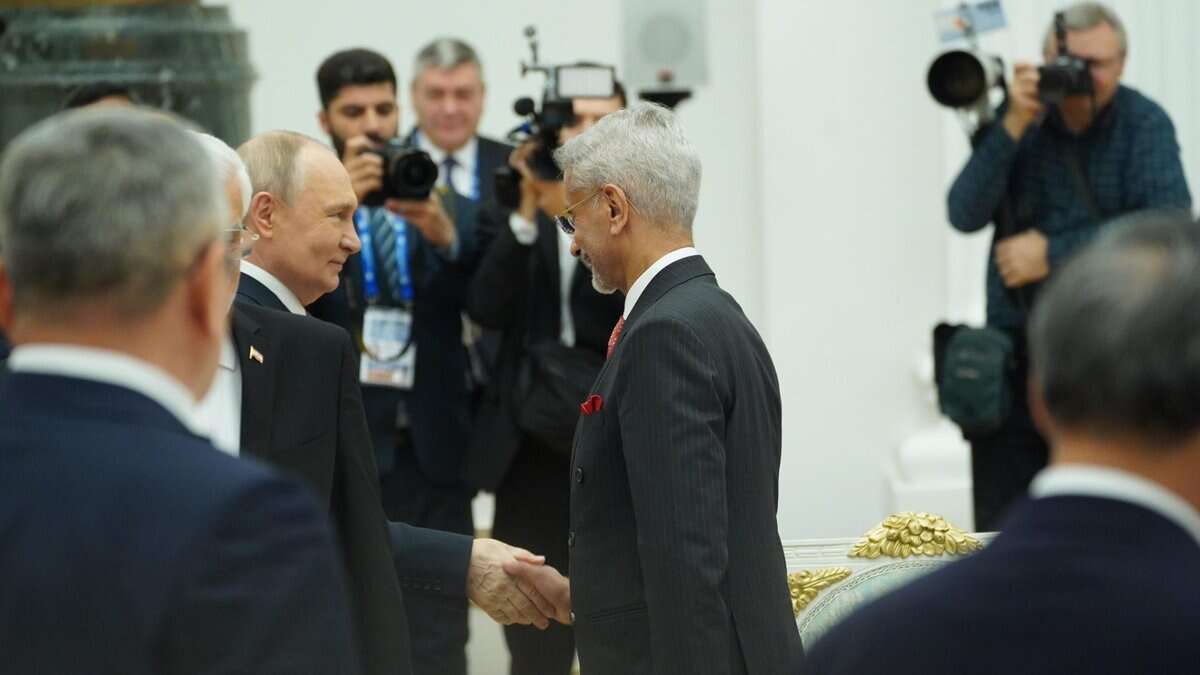
Moscow: India on Tuesday said that the world must display “zero tolerance” towards terrorism in all its forms and manifestations, asserting that there can be no justification, no looking away and “no whitewashing”.
“As India has demonstrated, we have the right to defend our people against terrorism, and will exercise it,” External Affairs Minister S Jaishankar said in his address at the Shanghai Cooperation Organisation (SCO) Council of Heads of Government meeting here.
Jaishankar said India believes that the SCO must “adapt to the changing global landscape, develop an expanded agenda, and reform its working methods”.
“We will contribute positively and fully to these objectives,” he said.
The SCO was founded at a summit in Shanghai in 2001 by the presidents of Russia, China, the Kyrgyz Republic, Kazakhstan, Tajikistan and Uzbekistan.
India and Pakistan became its permanent members in 2017.
In July 2023, Iran became the new permanent member of the SCO at an India-hosted virtual summit of the grouping.
“We must never forget that the SCO was founded to combat the three evils of terrorism, separatism and extremism. These threats have become even more serious in the years that have passed,” he said.
“It is imperative that the world displays zero tolerance towards terrorism in all its forms and manifestations. There can be no justification, no looking away and no whitewashing,” the EAM said.
Jaishnkar also emphasised on the prevailing economic situation globally and the importance of fostering greater cultural ties in the influential bloc.
“We assess the global economic situation to be particularly uncertain and volatile currently. Supply side risks have been aggravated by demand side complexities. There is consequently an urgent requirement to de-risk and diversify. This is best done by as many of us, forging the widest possible economic links,” he said.
For that to happen, it is essential that this process be “fair, transparent and equitable,” the EAM said.
“India’s endeavours to conclude free trade agreements with many of us here are relevant,” Jaishankar said.
And, India’s long-standing ties with SCO members makes it particularly pertinent, he added.
“As a civilisational state, India strongly believes that people-to-people exchanges lie at the core of any genuine relationship. Facilitating greater interaction between our intellectuals, artists, sports people, and cultural icons will pave the way for greater understanding across the SCO,” the external affairs minister said.
He said there is a growing record of collaborative activities with regard to cultural exchanges.
The exposition of sacred Buddhist relics in many of the countries which are SCO members is a “notable example,” he said.
India is also willing to extend its considerable experience of heritage conservation in Southeast Asia to Central Asia, Jaishankar said.
The theme of the session covered trade, economic, cultural and humanitarian cooperation.
Emphasising on humanitarian cooperation, the EAM also said this is important in an “era of climate change, pandemics and conflicts”.
As SCO continues to evolve, India “strongly supports” its reform-oriented agenda.
“We welcome centres addressing challenges such as organised crime, drug trafficking, and cybersecurity. As the organisation becomes more diverse, the SCO must be more flexible and adaptable,” the EAM added.
To this end, the “long-delayed decision” to make English an official language of the SCO must be prioritised, he stressed.
In his address, he underlined that “we all recognise” that SCO must keep up with contemporary changes.
That must be reflected in “fresh thinking and new collaborations”.
India’s initiatives, such as the SCO Special Working Group on Startups and Innovation and the SCO Start-Up Forum, are good examples. They are aimed at promoting innovation and creativity, especially targeting the younger generation, he said.
Similarly, the recent SCO Young Authors Forum in New Delhi is a good way of strengthening people-to-people ties, the EAM added.



